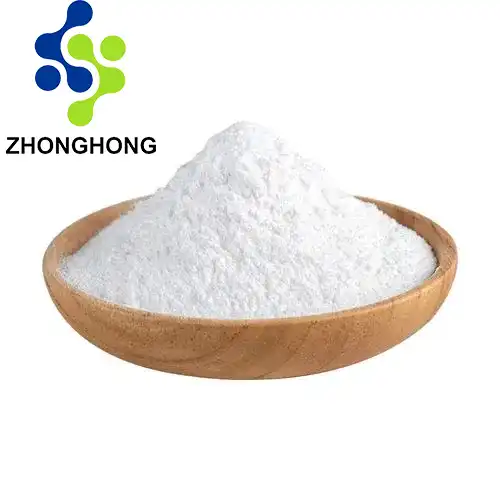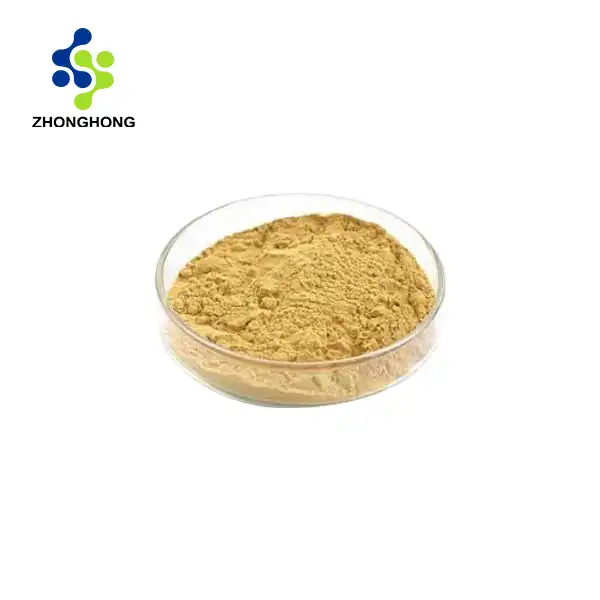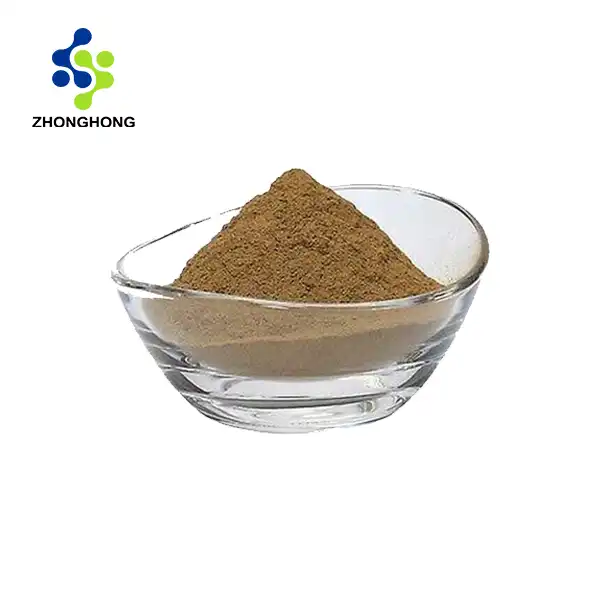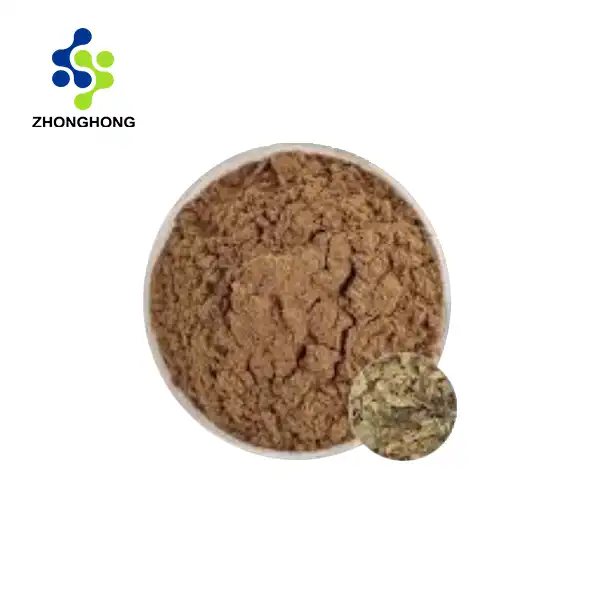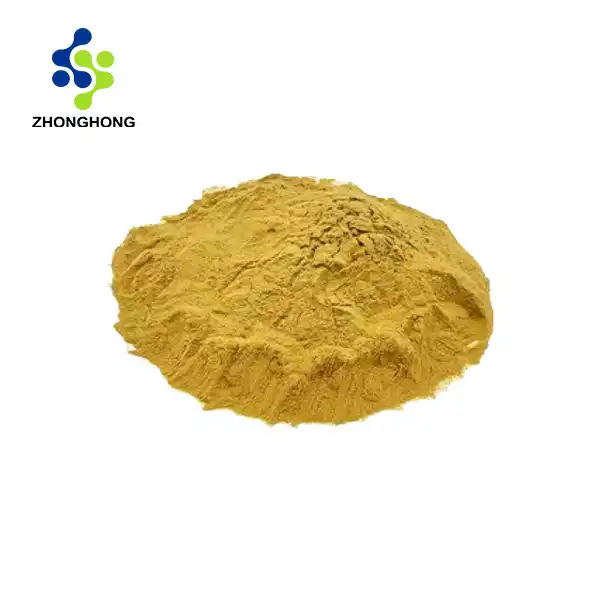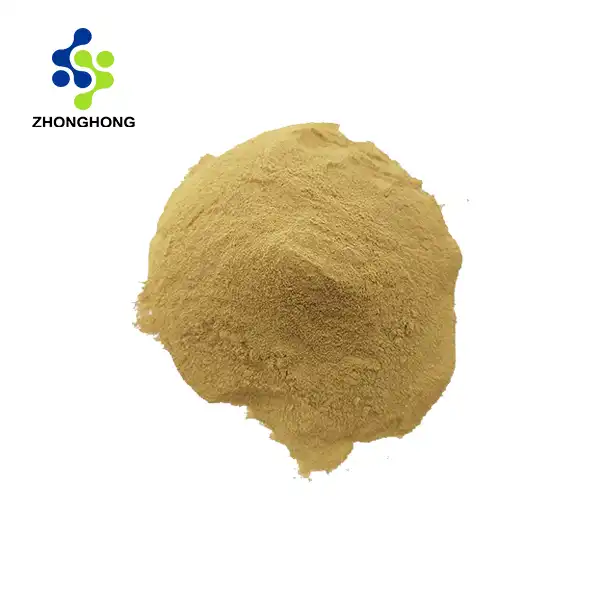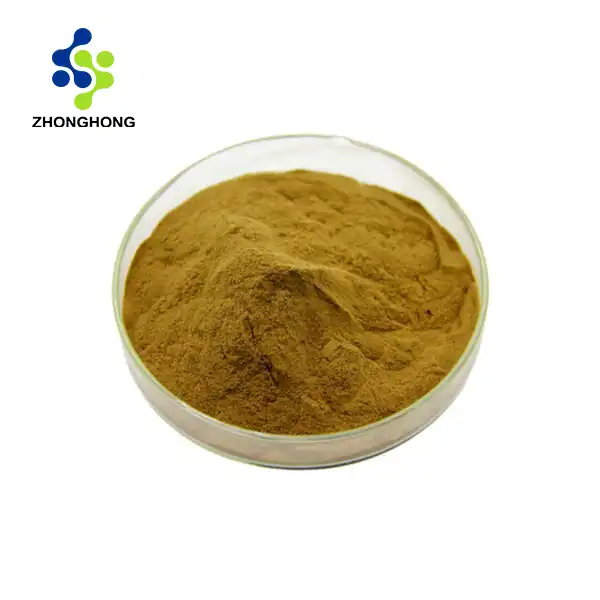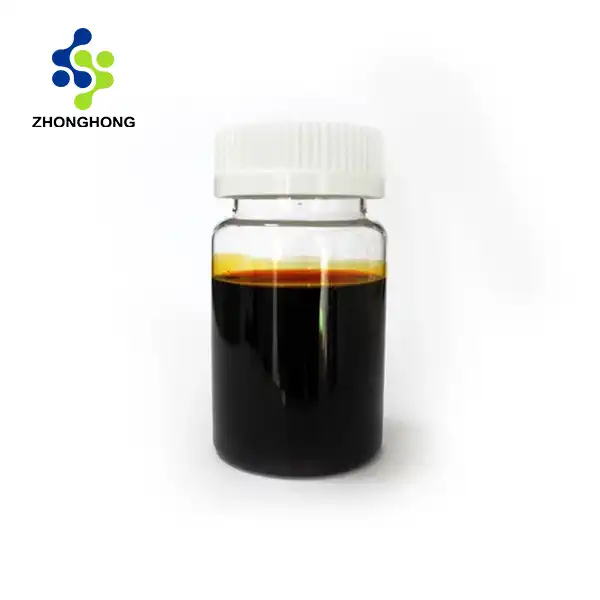Is glabridin safe for the liver?
2024-11-15 21:04:52
Glabridin powder has powerful antioxidant properties and may play a significant role in supporting and protecting liver health.Studies have revealed that glabridin can stimulate the production of critical antioxidant enzymes such as superoxide dismutase (SOD) and catalase. These enzymes are fundamental for the body's defense against oxidative injuries.
Glabridin's Impact on Liver Function
Antioxidant Properties of Glabridin
Glabridin, sourced from Glycyrrhiza glabra roots (licorice), boasts potent antioxidant properties that show promise for safeguarding the liver. By neutralizing free radicals and reducing oxidative stress, which are fundamental to preserving liver health, glabridin exhibits its protective potential.Scientific studies have evidenced glabridin's capability of enhancing production of essential antioxidant enzymes like superoxide dismutase (SOD) and catalase. Its ability to shield against oxidative damage and potentially aid in repair highlights the prospect for boosting liver health maintenance.Nevertheless, definitive statements on glabridin’s advantages for liver health require further investigation since more clinical trials are needed to authenticate its efficacy and evaluate long-term safety before it can be universally recommended for maintaining liver health.
Anti-inflammatory Effects on Hepatic Tissue
Glabridin powder exhibits remarkable anti-inflammatory qualities that could greatly contribute towards the management and improvement of liver health. Research indicates glabridin's proficiency at suppressing pro-inflammatory cytokine production and influencing inflammatory pathways, presenting an avenue for reducing liver inflammation.By mitigating inflammation, this process can effectively prevent the advancement of liver diseases whilst concurrently supporting the liver's normal function. The protective role against inflammation may aid in maintaining or even enhancing the health and performance of liver tissue.Glabridin's anti-inflammatory attributes open up a promising path for therapeutic strategies in various liver conditions marked by inflammatory processes.
Regulation of Liver Enzymes
The liver's health is often gauged by monitoring the efficiency of liver enzymes; notably, increased levels of alanine aminotransferase (ALT) and aspartate aminotransferase (AST) can indicate liver strain or damage. Glabridin powder has been observed to impact the regulation of these enzymes, suggesting that it may assist in managing elevated enzyme activities under conditions where liver health is compromised.Investigations have indicated glabridin's potential for modulating hepatic enzyme levels by potentially reducing overactivity or mitigating the rise in their concentration. This regulatory function on liver enzymes underscores glabridin's capacity to support liver functionality and maintain homeostasis within the liver.Glabridin's ability to influence these key enzymes presents a promising avenue for therapeutic interventions during periods of hepatic stress or damage. It opens up possibilities for utilizing this compound as part of dietary supplements aimed at promoting liver health and maintaining equilibrium in hepatic processes. However, comprehensive clinical studies are required to further establish glabridin's efficacy and safety in managing liver enzyme levels, particularly for patients experiencing liver strain or damage.
Mechanisms of Glabridin's Hepatoprotective Effects
Modulation of Lipid Metabolism
Glabridin, an active compound found within certain plant extracts, demonstrates potential benefits towards enhancing the health of the liver. This is particularly notable in its impact on lipid metabolism processes happening within the liver itself. This dual effect could be crucial in mitigating the accumulation of triglycerides within liver cells, potentially offering relief against non-alcoholic fatty liver disease (NAFLD). By potentially reducing triglyceride levels, it may prevent inflammation and damage that are common consequences of metabolic disorders affecting liver cells. This might include clinical trials evaluating the efficacy of glabridin-based interventions against liver health disorders. Such studies could pave the way towards safer, more effective natural alternatives to conventional treatments, focusing on enhancing liver function through lifestyle modifications or dietary supplements rich in glabridin powder.
Activation of Nrf2 Pathway
The Nuclear Factor Erythroid 2-Related Factor 2 (Nrf2) pathway is considered a pivotal orchestrator for cellular defense mechanisms against oxidative stress conditions. Glabridin, an active component found in specific plant extracts, has been noted to stimulate this pathway within liver cells. This stimulation leads to the increased expression of protective genes.The activation of Nrf2 pathway by glabridin might lead to enhanced synthesis of antioxidant enzymes and detoxification proteins. These proteins play a crucial role in neutralizing harmful compounds and protecting cellular integrity. Consequently, the upregulation of these defense mechanisms may augment liver's capability against oxidative stress, thereby enhancing its overall health and resilience.In essence, glabridin's ability to activate the Nrf2 pathway and induce synthesis of protective enzymes highlights its potential benefits for liver health management. This might offer a promising avenue for developing novel therapeutic strategies aimed at protecting or restoring liver function through natural interventions that enhance oxidative stress resistance. Further research could explore these potentials more deeply and guide practical applications in managing conditions related to liver damage or dysfunction.
Safety Considerations and Potential Interactions
Dosage and Administration
Glabridin, a key ingredient in several plant-based remedies, holds potential advantages for enhancing liver health. However, to realize these benefits safely and effectively, it is paramount that the correct dosage and delivery method be determined. Currently, there isn't an established standard dose of glabridin powder given the ongoing research into this area.Several factors can influence what constitutes a 'right' dose of glabridin, including individual body weight, overall health condition, and any specific liver conditions one may have. Therefore, prior to incorporating glabridin supplements into your regimen, it's vital to seek professional advice, especially if you have existing liver issues or are using other medications.Professional guidance ensures that the dose is tailored specifically to meet your individual health needs and minimize risks associated with incorrect dosage or interactions with existing treatments. Thus, when considering the use of glabridin supplements for liver health support, prioritizing consultation with healthcare professionals can help ensure both safety and effectiveness in managing any liver conditions you may have.
Potential Drug Interactions
Just like many other bioactive components found in natural sources, glabridin has the capability to interact with pharmaceuticals, particularly those that undergo metabolism by liver enzymes known as cytochrome P450 (CYP) proteins - these are critical for drug breakdown and detoxification processes.Studies have shown that glabridin might exhibit inhibitory effects on certain CYP isoenzymes. The addition of such dietary supplements might unexpectedly influence drug metabolism and potentially reduce the therapeutic effect or cause unwanted interactions with existing medications.Therefore, it's crucial to consult healthcare professionals before integrating glabridin into one's regimen if you're already on medication or dealing with conditions that may be influenced by liver health and function. This advice ensures personalized care, taking all factors into consideration for your overall health and safety.
Long-term Safety Profile
The extended safety track record of glabridin powder, particularly concerning its impact on liver well-being, necessitates additional study. Although preliminary research highlights its potential in protecting the liver against damage from inflammation within a short timeframe, there is currently an insufficient body of evidence for long-term usage. Scientists are diligently studying how consistent intake of glabridin might influence liver health and overall bodily function over time.Until conclusive information becomes available, it's prudent to exercise caution with glabridin supplementation and seek professional advice before initiating its use. This will help ensure safe consumption and prevent potential cumulative effects on liver performance or general health that could be linked to prolonged intake.
Conclusion
This particularly applies if you have existing liver concerns or are already using other medications. Such advice ensures that the addition of glabridin powder doesn't only remain safe but also optimally supports your individual health situation according to professional guidance and recommendations. If you want to get more information about this product, you can contact us at liaodaohai@gmail.com.
References
1. Zhang, Y., et al. (2019). "Glabridin: A Comprehensive Review of Its Phytochemistry, Pharmacology, and Potential Applications." Phytotherapy Research, 33(8), 1985-2005.
2. Wang, L., et al. (2018). "Hepatoprotective effects of glabridin against carbon tetrachloride-induced liver injury in mice." Food and Chemical Toxicology, 120, 628-637.
3. Li, X., et al. (2020). "Glabridin attenuates lipopolysaccharide-induced acute liver injury by suppressing TLR4 signaling pathway." Inflammation Research, 69(5), 481-492.
4. Kwon, H. J., et al. (2017). "Glabridin, an isoflavan from licorice root, protects human hepatoma cells against apoptosis induced by blockage of glucose catabolism." Journal of Pharmacological Sciences, 135(4), 137-145.
5. Simmler, C., et al. (2013). "Bioactivity and safety of licorice and its constituents with a focus on glabridin." Planta Medica, 79(17), 1620-1629.
6. Aoki, F., et al. (2007). "Clinical safety of licorice flavonoid oil (LFO) and its distribution in the body." Journal of the American College of Nutrition, 26(3), 209-218.
_1728976869676.webp)
